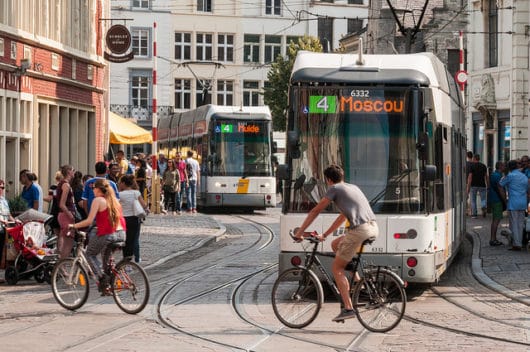Top 10 Facts About Living Conditions in Belgium

The small country of Belgium is bordering with France, Germany, Netherlands and Luxemburg. This culturally diverse and overpopulated country has largely been shaped by the immigrants drawn to its border. What is attracting people to the uniquely progressive country of Belgium and why are they sticking around? In the text below, top 10 facts about living conditions in Belgium, that will try to answer these and other questions are presented.
Top 10 Facts about Living Conditions in Belgium
- Belgium has a considerably dense population compared to its small land mass. Belgium is said to be home to 11.5 million people, according to its latest census back in 2015. With 942 people per square mile, the country ranks as the 33rd most densely populated country in the world.
- In addition to its high population, Belgium also has one of the biggest tax rates in the world. In 2014, the average worker in Belgium paid 42 percent of his or her yearly earnings back to the government. The money collected from taxes is used to fund government programs and resources like social security.
- The country has a great transportation system. Given the high population in the country, the government has invested in a healthy transportation system including highways, waterways and roads that are used to transport goods in and out of Western Europe. Travel is also easy for citizens with its railways and metro public transportation systems.
- Belgium’s growing population and modern nuances have given rise to a serious air pollution problem. According to the Environmental Performance Index (EPI), Belgium has second-worst environmental protection in Europe. In 2012, the European Environment Agency reported 11,770 deaths caused by the adverse effects of air pollution in Belgium.
- Belgium has mandatory health care that can be issued by the state or by private sector. Similar to the U.S. system, Belgians can select their own providers and pay low upfront costs while insurance covers a large percentage of the rest. Payment is based on the person’s income with a portion of 7.35 percent of gross income being deducted from the employer and the other part deducted from the salary itself.
- Belgium has what is known as a compulsory education system that means that no public institution can charge money for school up until the age of 18. Public education is completely free and covered by government funds. The system is so beneficial that private schools don’t even exist in some areas and in adults aged from 25 to 60, around 75 percent have finished some form of secondary education.
- Belgium is one of the few countries in the world that has a compulsory voting system. Those that do not vote in elections face a fine. Since the implementation of this system in 1892 for men and in 1949 for women, 89 percent of voters have shown up to cast their vote in elections that were held.
- Belgium is a fairly safe and inclusive country because of its liberal political views. In 2003, Belgium became the second country to legalize gay marriage. Belgians also have the right to prematurely choose to die in order to ease the pain and suffering caused by terminal illnesses. Another sign of the country’s inclusivity is the fact that 18 percent of the country’s population was made of immigrants in 2010.
- People immigrate to Belgium from all over Europe and, in the past, Belgium has been very liberal with its immigration policy. With the influx of people and a large terrorist attack that occurred back in 2016, Belgium has reigned in some of the masses flooding into the country to keep its people secure. Over the past few years, Belgium received 107,000 applications for asylum and granted only half of them.
- The country has a unique political system. Belgium is divided by language and broken up into three regions, all of which have their own government. Each has a parliament, but there are only one monarchy and prime minister that connect all the governments together.
Despite its environmental flaws and dense population, Belgium’s unique way of life and relaxed leadership has set a guideline for economic success that has yet to be outdone by the country’s neighbors. High taxes have allowed the government to take care of its citizens and to enable them to have secure health care and education.
– Catherine Wilson
Photo: Flickr
